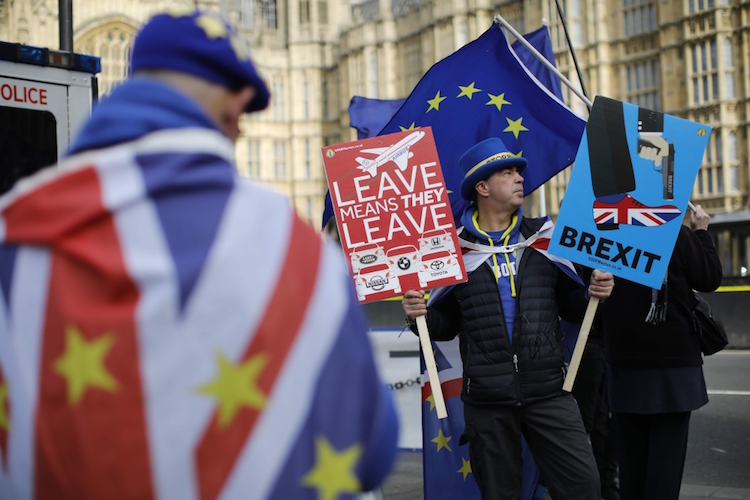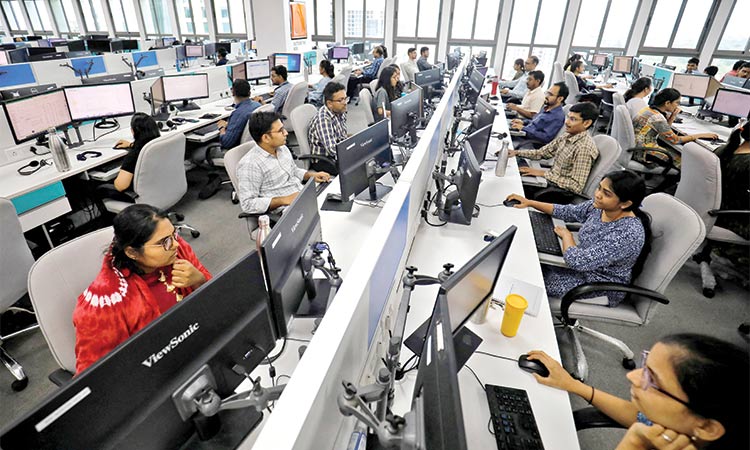Brexiteers are fighting among themselves

John Rentoul
@JohnRentoulChief Political Commentator, The Independent; visiting professor, King's College, London.

Remainers and Leavers are involved in a waiting game to see how Brexit emanates its consequences.
There was always going to be a problem for Boris Johnson in having fought an election on the promise to “get Brexit done”, which was that once it was done there would be no need for his electoral coalition to stay together. Or, worse, there would be disagreement about whether it had been done properly.
That is precisely what is beginning to happen. It is not happening in the way that some Remainers expected, which was that Leavers would realise Brexit imposes financial costs and see that they had made a mistake.
Nor are most Leavers interested when Remainers point out that Brexit isn’t “done” because the negotiations over trade terms are continuing. If anything, that helps keep the Brexit coalition together.
That was why Johnson was relaxed about David Frost’s plan to tear up the Northern Ireland protocol and renegotiate it. There were grounds for doing that anyway because it wasn’t working in the way Johnson expected — I think he genuinely expected an almost invisible border in the Irish Sea between Northern Ireland and the rest of the UK. But politically, an endless EU negotiation meant reminding people why they had voted for him for the first time, and that Labour couldn’t be trusted not to try to reverse Brexit.
That was until Johnson got cold feet about the prospect of an all-out trade war with the EU and ordered Lord Frost, his Brexit negotiator, to sue for peace and drop the stone lions. (I recently heard a story about an architect who would feature massive stone lions in the atrium of whatever building he was designing, knowing that the client would focus on getting rid of them from the plans, diverting them from asking for other changes. Frost’s demand to remove any trace of European Court jurisdiction from Northern Ireland seemed to serve a similar purpose.)
Unfortunately for Johnson, Frost resigned instead, adding to the divisions among Brexiteers. Some of these divisions have opened up along unexpected lines — nothing to do with the issues that dominated the referendum campaign. Let us, then, count the ways in which the Brexit revolution has started to devour its children.
The 101 Conservative MPs who defied the government whip over coronavirus restrictions before Christmas are by no means all hardcore Leavers, but with Steve Baker the ringleader it is obvious that the clean-break Brexiteers are the hard core of the anti-restrictions rebellion. It is remarkable that the ERG, the European Research Group of backbench Eurosceptics, who delivered the withdrawal agreement that got Brexit done for Johnson, has now turned on him as the CRG, the COVID Recovery Group.
Frost cited the tendency to adopt “coercive measures” as one of the reasons for his departure, but his resignation letter asked a bigger, more awkward question. Having got Brexit done, what was Brexit for? He wanted it to lead to Britain being “a lightly regulated, low-tax, entrepreneurial economy”.
Whereas Johnson, Rishi Sunak and Sajid Javid are taking it in the direction of a freedom-hating, high-tax, state-directed economy (I paraphrase, but Frost’s meaning was clear).This is a disaster for the Brexit cause.
People wanted to leave the EU for many different reasons, some of which were in obvious conflict with each other. Those conflicts were suppressed as long as the revolution had to be defended, but now that the battle has been won — and the substance of Brexit was completed only a year ago today, when we started to trade with the EU as a non-EU country — the divisions are opening up.
As I wrote yesterday, the issue in 2022 that will do the most damage to the Brexit cause is not the continuing evidence of the economic damage inflicted by Brexit. Most people voted Leave not for economic reasons but for the principle of self-government.
That is why the arrival of small boats across the Channel is so dangerous to the prime minister. He was elected to take back control of our borders and in this respect, he has failed to get Brexit done. That might be no political threat to him if there were some way of stopping the cross-Channel traffic, but it is becoming ever clearer how hard that would be.
For a while, I understand that the prime minister clung to the belief that once Emmanuel Macron was safely re-elected president in April, the French government would close the traffic down. But I think he has realised this isn’t likely or even possible.
People take the risk of crossing the Channel because they know that, if they make it, they are highly likely to be allowed to stay.







